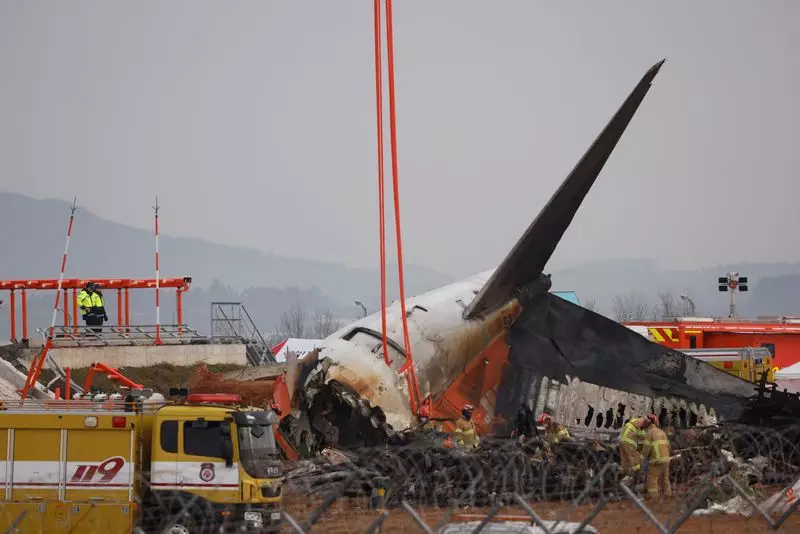The recent air crash involving Jeju Air marks a somber chapter in South Korea’s aviation history, resulting in the tragic loss of 179 lives. This catastrophic event, the deadliest in the nation’s history, sent shockwaves through the stock market as shares of the budget airline plummeted to record lows. As trading commenced on Monday, Jeju Air experienced an alarming decline of 8.5%, with a staggering fall of 15.7% at one point, bringing their stock to a historic low of 6,920 won. The subsequent loss in market capitalization reached a staggering 95.7 billion won ($65.2 million), illustrating the direct financial impact of this disaster.
The repercussions of the crash extended beyond Jeju Air, with the airline’s holding company, AK Holdings, witnessing a 12% drop in share value—the lowest in 16 years. This incident not only raises questions about the operational safety of budget airlines but also contributes to a growing concern regarding consumer confidence in air travel. The incident prompted South Korea’s acting President, Choi Sang-mok, to announce an emergency safety inspection of the country’s entire airline system, underscoring the government’s urgency to restore trust in aviation safety.
While budget carriers like Jeju Air faced dramatic declines, not all airlines reacted uniformly. Air Busan saw a notable increase of over 15% in its shares, suggesting that some airlines may benefit from the misfortunes of competitors. Conversely, rivals such as Jin Air and T’way Air recorded drops in their stock prices, albeit not as severe as Jeju Air’s. Major airlines like Korean Air and Asiana Airlines also experienced minor declines, pointing to a generalized unease in the travel sector.
Beyond airline stocks, travel agencies felt the immediate impact of the crash, with cancellations of vacation packages reportedly doubling and new bookings witnessing a sharp decline. These cancellations may largely stem from the public’s apprehensions following the crash, as many of the unfortunate passengers were returning from holiday festivities—heightening the emotional toll of the incident. Travel agency stocks responded with declines, with Hanatour Service and Very Good Tour dropping 7% and 11%, respectively.
The Future of Low-Cost Carriers in South Korea
While market analysts foresee a potential short-term dip in travel demand due to the crash, they generally agree that such tragedies are unlikely to undermine the structural stability of budget airlines. “Consumer sentiment will inevitably be hurt” amid concerns over safety, said analyst Yang Seung-yoon. Nevertheless, the long-term viability of budget carriers relies heavily on their ability to ensure safety while providing affordable travel options. Enhanced safety measures and transparent communication will be paramount in rebuilding consumer confidence.
The devastating crash of Jeju Air not only resulted in profound human tragedy but also catalyzed significant financial repercussions for the airline and its competitors. The ensuing fallout from this event will likely prompt a reevaluation of safety protocols in South Korea’s aviation industry, shaping the future landscape of air travel in a country where low-cost airlines have increasingly become integral to both local and international tourism.

